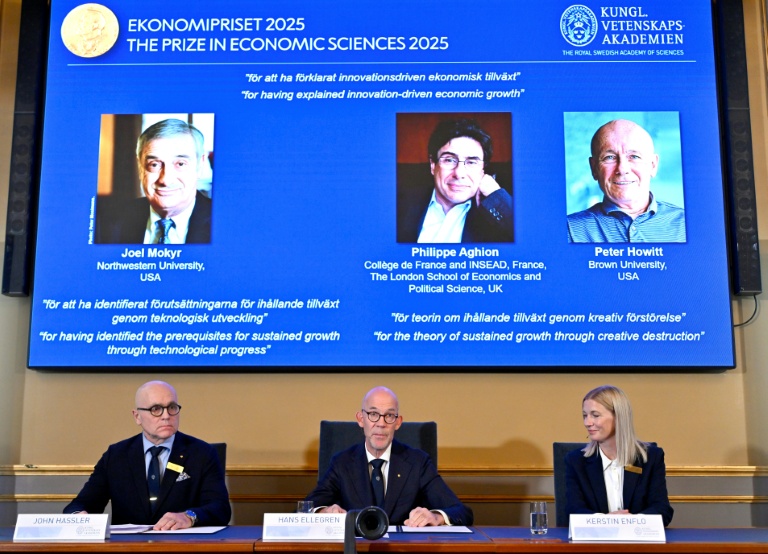World
Nobel Laureate Peter Howitt Calls for AI Regulation Amid Risks

Peter Howitt, a recipient of the 2023 Nobel Prize in Economics, expressed concerns on March 4, 2024, regarding the dual nature of artificial intelligence (AI). While he acknowledged the technology’s “amazing possibilities,” he emphasized the urgent need for regulation to mitigate its potential to displace jobs. Howitt, a professor emeritus at Brown University, made these remarks during a news conference, coinciding with California Governor Gavin Newsom signing a landmark law to regulate interactions with AI chatbots.
The new legislation marks a significant step in addressing the challenges posed by AI, especially as discussions about its impact on the labor market intensify. Governor Newsom’s decision to act comes despite pressure from the White House to maintain a more hands-off approach to the rapidly evolving technology landscape.
Howitt’s insights reflect a growing unease in academic and policy circles about the implications of AI. He was honored alongside fellow economist Philippe Aghion for their contributions to the understanding of how technology influences economic growth. Their research delves into the concept of “creative destruction,” which describes how new innovations can render older products and jobs obsolete.
At the press conference, Howitt stated, “We don’t know what the creative destruction effects are going to be.” He highlighted the inherent conflict between the technological advancements AI offers and the risks it poses to existing jobs, particularly for highly skilled workers. “This is a conflict. It’s going to have to be regulated,” he added, noting that “private incentives in an unregulated market” may not adequately address societal needs.
Howitt, aged 79, characterized this moment in history as comparable to other significant technological revolutions, such as the telecommunications boom of the 1990s and the introduction of electricity and steam power. He remarked, “How we’re going to do it this time? I wish I had specific answers, but I don’t.” His comments reflect a broader uncertainty regarding how society will navigate the challenges and opportunities presented by AI.
Reflecting on his academic journey, Howitt recalled the initial struggles he and Aghion faced when they sought publication for their seminal paper on creative destruction in 1992. It took five years for their work to be recognized, yet Aghion had a prophetic belief in its significance. “Right from the beginning, from our very first research, I remember back in 1987, Philippe saying we’re going to get a Nobel Prize for this,” Howitt recounted, adding that Aghion insisted, “Our time will come.”
Now, with their Nobel recognition, Howitt feels that their moment has indeed arrived, a testament to the enduring impact of their research in an era increasingly defined by technological transformation.
As the discourse surrounding AI regulation continues, Howitt’s remarks serve as a pivotal reminder of the need for thoughtful oversight in the face of rapid innovation. The balance between harnessing the benefits of AI while safeguarding employment remains a critical challenge for policymakers and society at large.
-

 Science3 months ago
Science3 months agoToyoake City Proposes Daily Two-Hour Smartphone Use Limit
-

 Health4 months ago
Health4 months agoB.C. Review Reveals Urgent Need for Rare-Disease Drug Reforms
-

 Top Stories4 months ago
Top Stories4 months agoPedestrian Fatally Injured in Esquimalt Collision on August 14
-

 Technology3 months ago
Technology3 months agoDark Adventure Game “Bye Sweet Carole” Set for October Release
-

 World3 months ago
World3 months agoJimmy Lai’s Defense Challenges Charges Under National Security Law
-

 Lifestyle4 months ago
Lifestyle4 months agoVictoria’s Pop-Up Shop Shines Light on B.C.’s Wolf Cull
-

 Technology3 months ago
Technology3 months agoKonami Revives Iconic Metal Gear Solid Delta Ahead of Release
-

 Technology3 months ago
Technology3 months agoApple Expands Self-Service Repair Program to Canada
-

 Technology3 months ago
Technology3 months agoSnapmaker U1 Color 3D Printer Redefines Speed and Sustainability
-

 Technology3 months ago
Technology3 months agoAION Folding Knife: Redefining EDC Design with Premium Materials
-

 Technology4 months ago
Technology4 months agoSolve Today’s Wordle Challenge: Hints and Answer for August 19
-

 Business4 months ago
Business4 months agoGordon Murray Automotive Unveils S1 LM and Le Mans GTR at Monterey









